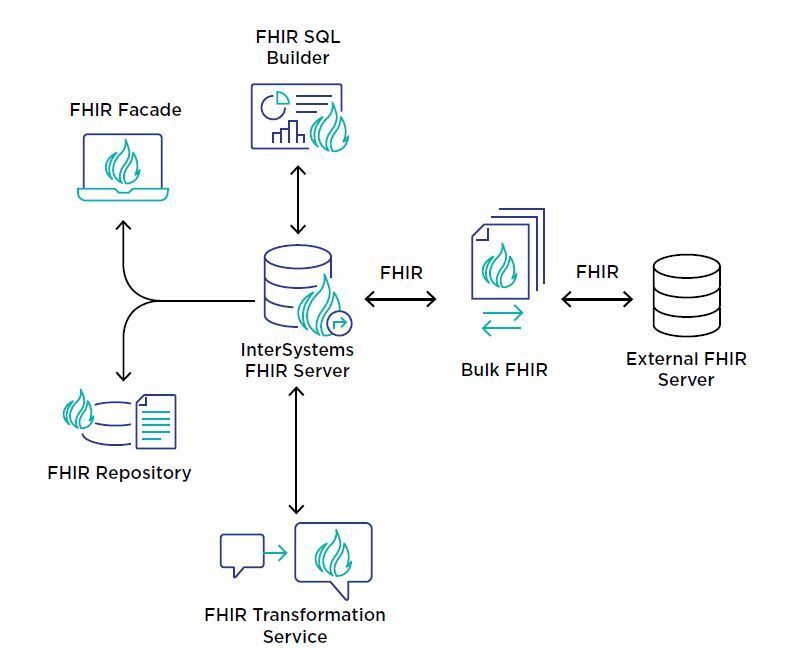In the evolving landscape of digital healthcare, data interoperability has become a top priority. A FHIR Server Solution is central to achieving this goal by offering a standardized approach to the exchange of health information. Developed by HL7, the Fast Healthcare Interoperability Resources (FHIR) standard provides the framework needed for seamless communication across disparate health systems, making it a vital component in modern healthcare IT strategies.

A FHIR Server Solution serves as the backbone for storing, retrieving, and managing health data in a format that is universally understood by applications and services. Traditional healthcare systems often struggle with proprietary formats and siloed data, but FHIR simplifies this by providing a RESTful API structure that supports JSON and XML formats. By implementing a FHIR Server Solution, healthcare providers can bridge these gaps and ensure better data accessibility.
One of the primary benefits of a FHIR Server Solution is its ability to support real-time data sharing. Whether between hospitals, clinics, or mobile health applications, a standardized server infrastructure enables quick and secure access to patient records. This is especially important in critical care situations where timely data access can influence clinical outcomes. A well-implemented FHIR Server Solution reduces the need for redundant tests and administrative overhead.
Developers and health IT vendors increasingly rely on a FHIR Server Solution to create interoperable applications. With the FHIR standard being modular and extensible, developers can design apps that focus on specific aspects of healthcare—such as medication management, lab reporting, or appointment scheduling—while ensuring these apps can integrate easily with other systems. This encourages innovation and accelerates the development of patient-centered technologies that rely on a robust FHIR Server Solution.
In addition to improving data exchange, a FHIR Server Solution enhances patient engagement. Patients today expect digital tools that allow them to view their records, communicate with providers, and manage their care plans. With a secure and compliant FHIR Server Solution, patient-facing applications can provide access to vital information in a consistent and user-friendly format. This empowers patients and strengthens the provider-patient relationship.
Security and compliance are also key advantages of using a FHIR Server Solution. Designed to meet stringent healthcare regulations like HIPAA and GDPR, modern FHIR servers come with built-in support for secure authentication, data encryption, and audit logging. These features help organizations meet their regulatory requirements while safeguarding sensitive health information. A reliable FHIR Server Solution ensures that data integrity and privacy are not compromised.
The implementation of a FHIR Server Solution also plays a crucial role in population health management. By aggregating data from various sources, health systems can analyze trends, track disease outbreaks, and develop more effective care strategies. This type of data-driven insight is only possible when information can be easily accessed and standardized through a powerful FHIR Server Solution.
For payers and insurers, a FHIR Server Solution provides a streamlined way to access claims data, clinical information, and member records. This enables faster claims processing, better risk assessment, and improved care coordination. Insurers can leverage the capabilities of a FHIR Server Solution to reduce administrative costs and enhance member satisfaction through improved transparency and communication.
Healthcare organizations transitioning to value-based care models benefit significantly from a FHIR Server Solution. Value-based care relies on accurate, up-to-date data to assess outcomes and performance metrics. With a centralized and standardized data repository, providers can track key indicators and ensure compliance with reporting standards. A scalable FHIR Server Solution supports these efforts by enabling continuous data exchange and analytics.
The adoption of cloud-based services has further boosted the appeal of a FHIR Server Solution. Cloud platforms offer scalable infrastructure, high availability, and rapid deployment, making it easier for organizations to implement and maintain their FHIR environments. A cloud-based FHIR Server Solution reduces upfront hardware investments and simplifies ongoing operations, particularly for smaller clinics and startups with limited resources.
Despite its many advantages, deploying a FHIR Server Solution requires careful planning and expertise. Data migration, integration with existing EHR systems, and staff training are critical components of a successful implementation. Many healthcare organizations choose to partner with experienced vendors or consultants to navigate these challenges. By doing so, they ensure that their FHIR Server Solution is not only compliant but also optimized for performance and scalability.
In academic and research settings, a FHIR Server Solution provides access to structured health data for clinical studies and trials. Researchers can use de-identified datasets to analyze treatment outcomes, patient demographics, and disease patterns. The standardized nature of FHIR ensures that data from multiple institutions can be aggregated and compared more easily, thanks to the interoperability provided by a FHIR Server Solution.
Global health initiatives also stand to gain from a widespread adoption of the FHIR Server Solution. By promoting consistent data exchange standards across countries and organizations, FHIR enables more efficient coordination during public health emergencies. For example, during a pandemic, a FHIR Server Solution allows for faster reporting of case numbers, vaccination records, and other key metrics, aiding global response efforts.
In conclusion, the FHIR Server Solution represents a transformative advancement in healthcare interoperability. By enabling secure, real-time, and standardized data exchange, it supports a wide range of use cases across clinical care, administration, research, and public health. As the healthcare industry continues to digitize, the FHIR Server Solution will remain a foundational element in building a more connected and patient-centered ecosystem.